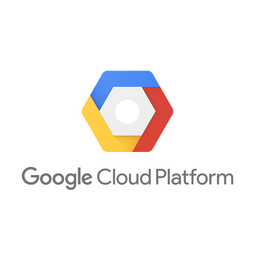公司规模
Startup
国家
- United States
产品
- Vertex AI
- Gemini
技术栈
- Google Cloud
- Natural Language Processing
- Generative AI
实施规模
- Enterprise-wide Deployment
影响指标
- Innovation Output
- Productivity Improvements
技术
- 分析与建模 - Generative AI
- 分析与建模 - 自然语言处理 (NLP)
- 平台即服务 (PaaS) - 数据管理平台
适用行业
- 医疗保健和医院
- Professional Service
适用功能
- 商业运营
- 产品研发
用例
- 远程协作
- 语音识别
服务
- 云规划/设计/实施服务
- 软件设计与工程服务
关于客户
The article profiles three startups: Abstrakt, Nextnet, and Ferret.ai, each leveraging AI to drive innovation in their respective fields. Abstrakt focuses on enhancing customer service experiences in contact centers using generative AI. Nextnet is a specialized search engine for life sciences and pharmaceutical researchers, utilizing AI to analyze biomedical data and uncover hidden relationships. Ferret.ai offers insights into personal and professional networks, using AI to provide relationship intelligence and monitoring solutions. These startups are part of a larger group that relies on Google Cloud's AI-optimized infrastructure and Vertex AI platform to accelerate their innovation and bring their products to market faster.
挑战
Startups face the challenge of rapidly innovating and bringing products to market while managing limited resources. They need to focus on solving the biggest challenges first to accelerate their execution and gain insights faster. The integration of AI into their offerings and development processes is crucial for achieving these goals. However, piecing together data across various platforms can create latency and poor user experiences, which is a significant hurdle for startups aiming to launch their products quickly.
解决方案
The startups utilize Google Cloud's Vertex AI platform to accelerate their innovation processes. Nextnet uses Vertex AI and Gemini for natural language processing and knowledge extraction, allowing researchers to ask complex questions and receive accurate answers. Abstrakt leverages Vertex AI to transcribe calls in real-time and evaluate sentiment, empowering teams to have more meaningful conversations with customers. Ferret.ai uses generative AI to analyze information, verify sources, and identify patterns, providing valuable insights for investors and businesses. By deploying packaged back-end solutions like Vertex AI, these startups can focus on their core competencies while Google Cloud handles model accuracy and performance.
运营影响
数量效益

Case Study missing?
Start adding your own!
Register with your work email and create a new case study profile for your business.
相关案例.

Case Study
Hospital Inventory Management
The hospital supply chain team is responsible for ensuring that the right medical supplies are readily available to clinicians when and where needed, and to do so in the most efficient manner possible. However, many of the systems and processes in use at the cancer center for supply chain management were not best suited to support these goals. Barcoding technology, a commonly used method for inventory management of medical supplies, is labor intensive, time consuming, does not provide real-time visibility into inventory levels and can be prone to error. Consequently, the lack of accurate and real-time visibility into inventory levels across multiple supply rooms in multiple hospital facilities creates additional inefficiency in the system causing over-ordering, hoarding, and wasted supplies. Other sources of waste and cost were also identified as candidates for improvement. Existing systems and processes did not provide adequate security for high-cost inventory within the hospital, which was another driver of cost. A lack of visibility into expiration dates for supplies resulted in supplies being wasted due to past expiry dates. Storage of supplies was also a key consideration given the location of the cancer center’s facilities in a dense urban setting, where space is always at a premium. In order to address the challenges outlined above, the hospital sought a solution that would provide real-time inventory information with high levels of accuracy, reduce the level of manual effort required and enable data driven decision making to ensure that the right supplies were readily available to clinicians in the right location at the right time.

Case Study
Gas Pipeline Monitoring System for Hospitals
This system integrator focuses on providing centralized gas pipeline monitoring systems for hospitals. The service they provide makes it possible for hospitals to reduce both maintenance and labor costs. Since hospitals may not have an existing network suitable for this type of system, GPRS communication provides an easy and ready-to-use solution for remote, distributed monitoring systems System Requirements - GPRS communication - Seamless connection with SCADA software - Simple, front-end control capability - Expandable I/O channels - Combine AI, DI, and DO channels

Case Study
Driving Digital Transformations for Vitro Diagnostic Medical Devices
Diagnostic devices play a vital role in helping to improve healthcare delivery. In fact, an estimated 60 percent of the world’s medical decisions are made with support from in vitrodiagnostics (IVD) solutions, such as those provided by Roche Diagnostics, an industry leader. As the demand for medical diagnostic services grows rapidly in hospitals and clinics across China, so does the market for IVD solutions. In addition, the typically high cost of these diagnostic devices means that comprehensive post-sales services are needed. Wanteed to improve three portions of thr IVD:1. Remotely monitor and manage IVD devices as fixed assets.2. Optimizing device availability with predictive maintenance.3. Recommending the best IVD solution for a customer’s needs.

Case Study
HaemoCloud Global Blood Management System
1) Deliver a connected digital product system to protect and increase the differentiated value of Haemonetics blood and plasma solutions. 2) Improve patient outcomes by increasing the efficiency of blood supply flows. 3) Navigate and satisfy a complex web of global regulatory compliance requirements. 4) Reduce costly and labor-intensive maintenance procedures.

Case Study
Cloud-based healthcare solution for Royal Philips
Royal Philips wanted to launch its cloud-based healthcare solution HealthSuite Digital Platform in China to deliver services to help cope with challenges related to urbanization and population growth. Philips wanted to achieve this goal by combining mobile, cloud computing and big data technologies. To bring this platform and product to market, Philips required cloud computing and local technical service capabilities in China, in addition to a flexible IT infrastructure that could handle user requests.








